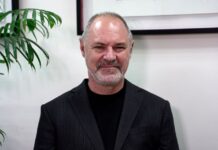It’s time for a new approach to development that adds value and gives citizens a voice and more rights. Until now development has been driven in a top-to bottom approach where government bureaucrats sit in air-conditioned offices and figure out what development dispensation should come into existence.
But this process doesn’t allow for those for whom the development is intended to participate or determine its nature or the process.
At transnational level, capital exporting countries (mostly developed countries), as well as global corporations determine development, which undermines the rights and interests of capital importing countries (mostly developing countries) and their people.
The former would even enter into investment agreements to protect their financial interests, especially where they consider local legal arrangements are inadequate to protect their assets in the host country.
A recent process called a Permanent People’s Tribunal highlighted the failures and atrocities visited upon citizens of developing countries by transnational corporations in areas such as mining, land and agriculture as well as other sectors in southern Africa.
Alternative models of development need to come to the fore.
An example of this is land certification in Ethiopia, which has economically empowered women by enabling them to own land and use it productively, profitably and sustainably.
Women development groups are a bottom-up model worth exploring. They help restore power to the people and entrench the right to say no where they are not convinced that any proposed development is in their interest in the short or long term.
The young and emerging women leaders say: “I don’t want my story of abject poverty to be repeated in my children.”
In March the UN Commission on the Status of Women reported that no less than 47 000 development groups, consisting of 300 members, had been established, with 12 million members in Ethiopia.
They have rural land proclamation certificates and they also have co-op proclamation credit unions that support micro-small enterprises.
Another shining example of alternative development is the One Acre Fund project, a private initiative in Kenya that was fully funded from the beginning by big donors like the Bill & Melinda Gates Foundation and others. It started in 2006 by mobilising farmers who had little or no knowledge of agriculture.
What they needed was training in agricultural techniques, seed selection and use of fertilisers, transport for distribution of inputs and, ultimately, market facilitation.
The project revolved around operating a loan-revolving fund for the benefit of the farmers, with the tag-line “Farmers First”.
It initially involved 38 farmers, but soon spread to neighbouring countries such as Rwanda, Burundi, Uganda, the Democratic Republic of Congo, Tanzania and Malawi, reaching 600 000 farmers by 2017, and is now aiming to reach a million farmers by 2020.
They estimate that one farmer is able to feed five members of the family. Thus, 1 million farmers will extricate 5 million people from grinding and abject poverty.
In South Africa, in the Western Cape, Kosie van Zyl helped 30 destitute coloured people in 2006 to access a commonage of the municipality. They leased it and Van Zyl mentored them in planting wheat, rye, barley, oats, canola and lupins.
By the end of last year they had revenues of R7 million, huge tractors, sprayers and harvesters, which they even loan out to other farmers in the neighbourhood. They also acquired two additional farms that they now own outright.
These are examples of the bottom-up approach to development that need to be supported and replicated with serious and earnest funding by the government and the private sector.
After all, if truth be told, so-called foreign direct investment is no investment at all, but foreign direct extraction of value.
When you examine the conditionalities that accompany these so-called investments by developed countries and transnational corporations, you can only conclude they make sure that they take the upside in reaping profit, leaving crumbs for the locals.
In the mining sector, South Africa has seen devastation left in the wake of some mining firms with damaged soil after years of mining and pollution as well as divided communities that have led to violence, as seen in Marikana and at Amadiba on the Wild Coast.
The storyline is the same in southern Africa – from Madagascar, Swaziland, Mozambique, Zimbabwe, Zambia, to the DRC – the only differences are in the details.
It is time an alternative model is pursued to give our countries a more humane face, restore our people’s dignity and do away with the mindless accumulation of wealth at all costs.
This article was written by Wallace Mgoqi and was sourced from IOL/BusinessReport; for the original article, click here. Mgoqi is the chairperson of AYO Technology Solutions. He is writing in his personal capacity.















